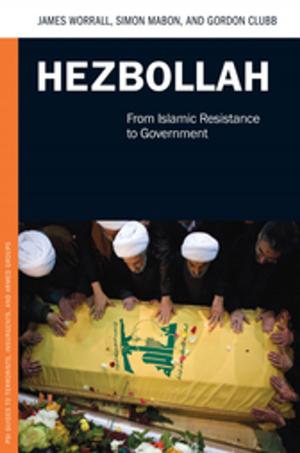Galula: The Life and Writings of the French Officer Who Defined the Art of Counterinsurgency
Nonfiction, History, Military, Strategy, Other| Author: | A A Cohen | ISBN: | 9781440800504 |
| Publisher: | ABC-CLIO | Publication: | August 3, 2012 |
| Imprint: | Language: | English |
| Author: | A A Cohen |
| ISBN: | 9781440800504 |
| Publisher: | ABC-CLIO |
| Publication: | August 3, 2012 |
| Imprint: | |
| Language: | English |
The product of years of extensive research made possible by exclusive access to Galula's personal papers as well as first-hand accounts from colleagues, family members, and friends, this book traces Galula's life from early childhood until death, describing his upbringing, education, and military career in the tumultuous historical context of his era. The author—a former counterinsurgency practitioner himself—pays particular attention to how the Chinese Revolution and the Algerian War affected Galula's views, and identifies Galula's mentors and the schools of thought within the French military that greatly influenced his writings.
A conclusion illuminates the contemporary and likely future validity of his works. In the epilogue, the author speaks to Galula's influence over modern military thought and U.S. counterinsurgency doctrine. This book is essential reading for individuals with an interest in counterinsurgency, Galula's writings, or Galula himself, such as military officers and civilian administrators undertaking counterinsurgency courses and training.
The product of years of extensive research made possible by exclusive access to Galula's personal papers as well as first-hand accounts from colleagues, family members, and friends, this book traces Galula's life from early childhood until death, describing his upbringing, education, and military career in the tumultuous historical context of his era. The author—a former counterinsurgency practitioner himself—pays particular attention to how the Chinese Revolution and the Algerian War affected Galula's views, and identifies Galula's mentors and the schools of thought within the French military that greatly influenced his writings.
A conclusion illuminates the contemporary and likely future validity of his works. In the epilogue, the author speaks to Galula's influence over modern military thought and U.S. counterinsurgency doctrine. This book is essential reading for individuals with an interest in counterinsurgency, Galula's writings, or Galula himself, such as military officers and civilian administrators undertaking counterinsurgency courses and training.







![Cover of the book The Definitive Shakespeare Companion: Overviews, Documents, and Analysis [4 volumes] by A A Cohen](https://www.kuoky.com/images/2017/june/300x300/9781440834455-iWJA_300x.jpg)






![Cover of the book Iconic Mexico: An Encyclopedia from Acapulco to Zócalo [2 volumes] by A A Cohen](https://www.kuoky.com/images/2015/august/300x300/9781610690447-nRcv_300x.jpg)
